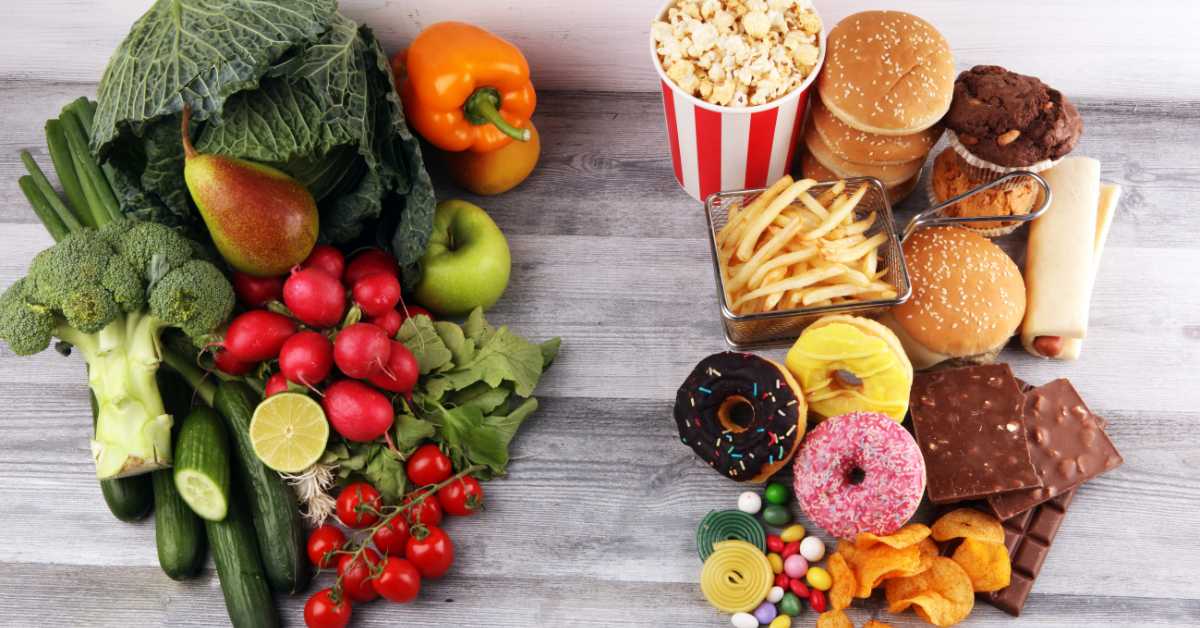Do you ever find yourself unable to get enough of someone? That feeling of longing, of craving their presence and attention, can be both exhilarating and frustrating.
In this article, we will explore the various ‘Responses to Can’t Get Enough of You’.
Infatuation is a thrilling experience that many of us have encountered at some point in our lives. It consumes our thoughts, makes our hearts race, and gives us a sense of euphoria. However, when the desire becomes insatiable, it can lead to frustration and even obsession.
Understanding the difference between healthy attachment and unhealthy patterns is crucial in maintaining balanced relationships.
We will delve into the power of dopamine, the neurotransmitter responsible for cravings, and explore coping mechanisms to manage intense desires.
Moreover, recognizing the pitfalls of excessive attachment is vital in nurturing relationships without losing ourselves. Setting boundaries plays a significant role in managing strong desires while embracing self-reflection helps us understand the root cause behind our cravings.
If you’ve ever felt like you just can’t get enough of someone, join us as we navigate through these responses and discover ways to find balance in your relationships while satisfying your need for belonging.
Responses To Can’t Get Enough Of You: “Can’t get enough of you” expresses intense affection and desire. These words convey a deep emotional connection, emphasizing the magnetic pull and insatiable longing for someone special.
The Thrill of Infatuation

You can’t help but become consumed by the intoxicating rush of infatuation as if every fiber of your being is ignited with an insatiable hunger for more.
It’s as though you’ve stumbled upon a hidden treasure, a secret world that only the two of you inhabit. In this realm, time stands still and everything else fades into insignificance.
Every moment spent together feels like a stolen kiss in the dark, electrifying and exhilarating. The mere thought of their touch sends shivers down your spine, making your heart race with anticipation. You crave their presence like a drug addict yearns for their next fix.
This intense infatuation creates an unbreakable bond between you and them. Your souls entwine, dancing to a melody that only the two of you can hear. Their words become poetry to your ears, and every gesture they make feels like an intimate language spoken only by lovers.
The thrill of infatuation is addictive; it fills you with a sense of purpose and belonging. It’s as if they hold the key to unlocking the deepest parts of your soul, revealing layers within yourself that you never knew existed.
In this state of infatuation, there are no boundaries or limitations. You’re willing to go to great lengths just to be near them, sacrificing sleep and sanity for stolen moments together. Every second spent apart feels like an eternity until you’re reunited once again.
Infatuation may be fleeting, but its impact lingers long after it fades away. It leaves behind memories that will forever be etched in your heart the taste of their lips, the warmth of their embrace reminders that once upon a time, you were consumed by an all-encompassing desire for them alone.
Longing for More: The Frustration of Insatiable Desire
Yearning for more, it’s the relentless ache of insatiable desire that consumes your every thought. You can’t help but long for their presence, craving every moment spent together. The thrill of infatuation has taken hold of you, leaving you wanting more and more.
It’s a frustration that grows with each passing day. You find yourself constantly replaying memories in your mind, relishing in the moments when you were close to them.
Their touch, their smile, everything about them lingers in your thoughts like a sweet melody that you can’t get out of your head. But no matter how much time you spend with them, it never feels like enough.
The longing becomes overwhelming at times as if an invisible force is pulling you towards them. You yearn for their attention and affection, craving a sense of belonging in their world. Each passing day without them feels like an eternity.
But amidst this frustration lies hope. Hope that one day they will see the depth of your feelings and reciprocate them fully. Hope that the ache will subside and be replaced by contentment and fulfillment.
Until then, you continue to navigate through this sea of insatiable desire, holding onto the belief that someday your longing will be satisfied.
Obsession vs. Healthy Attachment: Understanding the Difference

Amidst the labyrinth of emotions, it’s crucial to discern between obsession and a healthy attachment. When you can’t get enough of someone, it’s natural to feel consumed by thoughts of them.
However, it’s important to understand the difference between an unhealthy fixation and a healthy longing.
Obsession is like being trapped in a never-ending loop. It consumes your every waking thought and makes it impossible to focus on anything else.
You constantly crave their attention and presence, often sacrificing your well-being in the process. This kind of attachment can be suffocating for both parties involved.
On the other hand, a healthy attachment is built on trust and mutual respect. You long for their company but are still able to maintain your own identity and independence.
You enjoy spending time together but also value personal space. Your desire for closeness stems from a genuine connection rather than an overwhelming need for validation.
Belonging should be about finding solace in one another’s presence without losing sight of yourself. It’s about creating a balance between intimacy and individuality.
So, as you navigate through the maze of emotions, remember that there is a fine line between obsession and healthy attachment. Choose wisely and nurture relationships that bring out the best in both you and your loved ones.
The Power of Dopamine: Exploring the Neurochemistry of Craving
Dopamine’s power lies in its ability to create intense cravings that consume your thoughts and drive you toward seeking out the object of your desire. It’s like a magic potion that floods your brain, making you yearn for more and more.
When you can’t get enough of someone, it’s not just a simple infatuation or passing fancy it’s a deep-rooted need to be with them, to feel their presence, and to experience the rush of pleasure that comes from being in their company.
You find yourself constantly thinking about this person, daydreaming about the moments you’ve shared, and imagining future encounters. The mere thought of them brings a smile to your face and sets off fireworks inside you.
Your heart races when they’re near, and every touch sends shivers down your spine. It’s as if they have become an addiction a drug that you can’t resist.
This craving is fueled by dopamine, a neurotransmitter that plays a major role in reward-motivated behavior. It creates pathways in your brain that associate the object of your desire with pleasure and happiness. The more time you spend with this person, the stronger these connections become.
But it’s important to recognize the difference between healthy attachment and unhealthy obsession. While it’s natural to feel drawn towards someone who fulfills our needs for love and connection, it becomes problematic when it consumes our every waking thought or interferes with other aspects of our lives.
So embrace those feelings of longing but also maintain balance in your life. Remember that true belonging comes from within yourself first; others can enhance it but should never define it entirely.
Coping Mechanisms: Strategies for Dealing with Intense Desire

One effective way to manage intense desire is by developing healthy coping mechanisms that allow for a sense of balance and fulfillment in your life.
When you feel the overwhelming urge for more, it’s crucial to find strategies that can help you navigate these cravings without losing yourself in the process.
Firstly, it’s important to recognize and acknowledge your desires. Understand that it’s natural to have intense cravings and that they don’t define who you are as a person. By accepting these feelings, you can start exploring healthier outlets to fulfill them.
One helpful strategy is finding alternative activities or hobbies that bring joy and satisfaction. Engaging in physical exercise, creative pursuits, or spending quality time with loved ones can redirect your focus toward fulfilling experiences rather than solely relying on one source of desire.
Additionally, building a support network can be immensely beneficial. Surround yourself with individuals who understand your struggles and share similar goals. They can provide encouragement, accountability, and guidance during challenging times.
Lastly, practicing self-care is essential when dealing with intense desire. Take time for yourself regularly, engaging in activities that promote relaxation and self-reflection.
This allows you to connect with your inner desires on a deeper level while maintaining a healthy balance in other areas of your life.
Remember, managing intense desire requires patience and perseverance. By implementing these coping mechanisms into your daily routine, you can find a sense of belonging within yourself while still pursuing personal growth and fulfillment.
The Pitfalls of Attachment: Recognizing Unhealthy Patterns
Recognizing unhealthy patterns in attachment can be a crucial step toward cultivating healthier relationships and finding true fulfillment. When you find yourself unable to let go of someone, constantly seeking their validation and attention, it’s important to pause and reflect on the potential pitfalls of such attachment.
One common pitfall is losing sight of your worth and identity. You may start defining your self-worth solely based on the other person’s approval, neglecting your own needs and desires. This can lead to a distorted sense of self and an imbalance in the relationship.
Another pitfall is becoming overly dependent on the other person for happiness. Your happiness shouldn’t solely depend on someone else; it should come from within.
Relying too much on others for validation can make you vulnerable to manipulation, as well as hinder personal growth.
Lastly, unhealthy attachments often involve a lack of boundaries. You may find yourself sacrificing your values or neglecting your well-being just to please the other person. It’s important to establish healthy boundaries that prioritize both your needs and theirs.
By recognizing these pitfalls, you can begin to break free from unhealthy patterns of attachment. Remember, true fulfillment comes from developing a strong sense of self-worth, maintaining personal boundaries, and fostering healthy relationships built on mutual respect and support.
Finding Balance: Nurturing Relationships without Losing Yourself

Maintaining a healthy balance in relationships means nurturing connections while also staying true to yourself and your own needs.
It’s natural to want to be close to someone and share your life with them, but it’s important not to lose sight of who you are in the process.
You deserve love and belonging, but not at the expense of your own identity. Finding balance begins with setting boundaries. Communicate your needs and expectations clearly, and don’t be afraid to say no when something doesn’t align with your values or personal goals.
Remember, it’s okay to prioritize yourself sometimes.
In any relationship, it’s crucial to maintain individuality. Don’t let go of the things that make you unique or neglect activities that bring you joy. Continue pursuing hobbies, spending time with friends, and taking care of yourself physically and emotionally.
This will not only enhance your well-being but also contribute positively to the relationship.
Remember that healthy relationships are built on mutual respect and support. Encourage each other’s growth and celebrate individual achievements along the way. Embrace differences as opportunities for learning and expanding perspectives.
By finding this balance between nurturing relationships and preserving your sense of self, you can create a fulfilling connection without losing sight of who you are as an individual. Belonging is important, but so is staying true to yourself find harmony in both!
The Role of Boundaries in Managing Strong Desires
Now that you’ve learned about finding balance in relationships, let’s explore the role of boundaries in managing strong desires.
Boundaries are like invisible fences that define what’s acceptable and respectful behavior in a relationship. They help ensure that both parties feel comfortable and safe.
When it comes to managing strong desires, boundaries play a crucial role in maintaining a healthy dynamic. It’s important to recognize that intense emotions can sometimes cloud our judgment and lead us to overlook our own needs.
Setting clear boundaries allows you to prioritize your well-being while still nurturing the connection with your loved one. Establishing boundaries involves open communication and mutual consent. You have the right to voice your needs and expectations, as does the other person involved.
By clearly defining what’s acceptable and what isn’t, you create an environment where both parties feel respected and understood. Remember, setting boundaries doesn’t mean pushing people away or being selfish.
It’s about creating a harmonious balance where your desires can coexist with those of others without compromising your sense of self-worth.
So, as you navigate the depths of desire, remember that healthy relationships thrive when there are clear boundaries in place. Embrace them as guideposts on your journey towards fulfillment and belonging.
Embracing Self-Reflection: Understanding the Root of Your Cravings

Embracing self-reflection allows you to delve into the root of your cravings and gain a deeper understanding of what drives them. It’s important to take a step back and examine why you’re constantly craving someone or something.
Is it because you feel empty inside, longing for a sense of belonging? Or perhaps it stems from past experiences that have left you yearning for validation and love.
By taking the time to reflect on these feelings, you can begin to unravel the underlying emotions that fuel your desires.
Self-reflection is not about blaming yourself or feeling guilty for wanting more. Instead, it’s about acknowledging your desires and exploring where they come from.
This process can be both enlightening and empowering as you learn more about yourself and what truly brings you fulfillment.
As humans, we all desire connection and belonging. It’s natural to crave intimacy and affection from others. However, when these desires become all-consuming, they can lead to unhealthy patterns of behavior. Self-reflection helps us identify when our cravings are becoming excessive and potentially harmful.
By understanding the root causes of our cravings, we can develop healthier ways to fulfill those needs without relying solely on external sources.
Whether it’s through self-love practices, therapy, or building strong relationships with supportive friends and family, embracing self-reflection allows us to make conscious choices that align with our truest selves ultimately leading us toward a greater sense of belonging in the world around us.
20 Responses to “Can’t Get Enough of You”
Here, we will talk about the clever 20 responses to “Can’t get enough of you”:
- I’d prefer it if you didn’t.
- Well, that’s not possible.
- Classic response, heard it before.
- Ever tried “Breakfast”?
- Nice try, but not falling for it.
- Mutual feelings, I suppose.
- Are you sure you’re fine?
- That’s kind of you.
- Please stop.
- I feel the same way about you.
- This scenario again?
- Full of unexpected moments.
- I’m happy you can’t.
- If only that were true.
- Surprises seem to be your thing.
- Sounds like a ploy for more attention.
- The joke isn’t working for me, sorry.
- What’s the reason behind this?
- I’m pretty sure you have the ability.
- It seems unlikely in the future.
FAQs About Responses To Can’t Get Enough Of You:
Q:1 How can I make someone else feel the same level of infatuation towards me?
To make someone feel the same level of infatuation towards you, focus on building a strong emotional connection. Show genuine interest in their life and listen attentively to what they have to say. Be supportive and understanding, and make them feel valued and appreciated.
Engage in activities together that create shared experiences and memories. Remember, true belonging comes from mutual respect and deep connection with another person.
Q:2 Can intense desire for someone be considered a mental illness?
Intense desire for someone cannot be considered a mental illness. It’s a normal human emotion that many experience. However, if this desire becomes obsessive and starts interfering with your daily life or relationships, it could be a sign of an unhealthy attachment or addiction.
Remember, it’s important to maintain a balance in your emotions and seek professional help if needed. You deserve love and belonging without compromising your well-being.
Q:3 What are some healthy coping mechanisms for dealing with intense desire?
When dealing with intense desire, it’s important to find healthy coping mechanisms. One way is to focus on self-care and nurturing yourself. Take time for activities that bring you joy and relaxation.
Connect with loved ones who support and understand you. Practice mindfulness and meditation to help calm your mind. Engage in hobbies or exercise to distract yourself from overwhelming thoughts.
Remember, finding balance and taking care of yourself is key to handling intense desires healthily.
Q:4 How can I maintain a healthy balance in my relationships while still nurturing my personal growth?
To maintain a healthy balance in your relationships while nurturing personal growth, it’s important to prioritize self-care and set boundaries.
Remember that investing in yourself doesn’t mean neglecting others; it means finding harmony between your needs and the needs of your relationships.
Communicate openly with loved ones about your goals and aspirations, seeking support and understanding.
By taking care of yourself, you’ll be better equipped to contribute positively to your relationships, fostering a sense of belonging and fulfillment.
Q:5 What are some signs of an unhealthy attachment pattern in a relationship?
Signs of an unhealthy attachment pattern in a relationship include constantly needing reassurance, feeling anxious when apart, and losing your sense of self.
You may find yourself neglecting your own needs to please the other person, and becoming overly dependent on their validation.
Remember, it’s important to maintain a healthy balance between nurturing your relationships and taking care of yourself.
Communication and setting boundaries can help create a healthier dynamic where both partners feel secure and supported.
Conclusion:
In conclusion, you can’t get enough of them. The thrill of infatuation consumes you, leaving you longing for more. But be careful not to cross the line into obsession.
Understanding the difference between healthy attachment and unhealthy patterns is crucial in managing intense desires. Coping mechanisms and setting boundaries are essential tools in finding balance while nurturing relationships without losing yourself.
Embrace self-reflection and delve into the root of your cravings to maintain a healthy mindset. Remember, it’s okay to want someone, but never forget to prioritize your well-being too.
We hope you will be well aware of Responses To Can’t Get Enough Of You, after reading this comprehensive article. If you have any questions, feel free to comment below!
